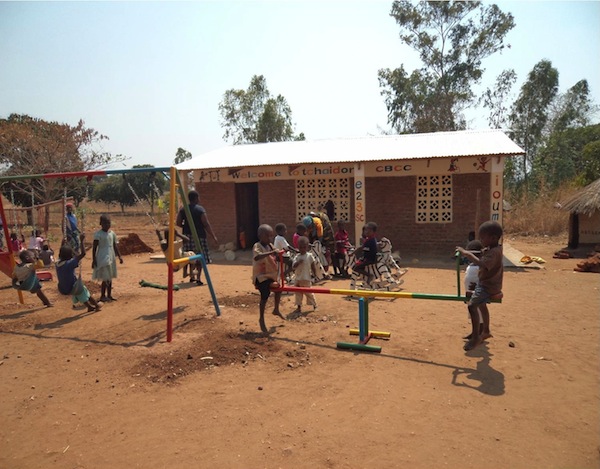Community Innovation Improves Quality Data Reporting
While most of the community caregivers in Community Based Child Care Centres (CBCCs) have low education attainment that makes it difficult for them to fill out data capturing forms for their centres, the communities around Chaidoni Village in Balaka District have devised an ingenious way to ensure that low education attainment no longer stands in the way of quality data reporting. Save the Children’s Monitoring and Evaluation Manager for the Education Program in Malawi, Charles Nzawa testifies.
Jane is one of the few committed caregivers at Chaidoni CBCC in Chaidoni village, Traditional Authority Msamala in Balaka District of southern Malawi. Chaidoni is one of the villages where Project Malawi 111 (an innovative Save the Children Early Childhood Development-ECD-project) is supporting communities on HIV & AIDS impact mitigation through support to CBCCs and children’s corners.
Jane went up to Standard 5 and did not complete primary school. Like many of her colleagues with similar level of education, Jane has difficulties in understanding most of the basic concepts and tools used in Early Childhood Development as well as filling in CBCC attendance registers and other reporting forms. She is a simple village smallholder farmer who, together with other community members in her village, has great passion for supporting Orphans and Vulnerable Children (OVC).

“We have different levels of understanding, as such, some of us find it difficult to fill in the reporting forms because of our level of education, while others understand the forms pretty well” says Jane.
“In the past, one caregiver was responsible for data compilation whenever he or she was on duty. As a result, registers and data forms were not properly filled in most cases. It was therefore difficult for us to know exactly how many children were coming to our center, or how many had eaten porridge on a particular day. Consequently we often reported late to the CBO, Save the Children and the Social Welfare Office and in some cases we could not report at all,” She added.
With support from the centre’s mentor caregiver and representatives of the parent Community Based Organisation, Jane and her colleagues discussed the issue and agreed that no individual should be entrusted with the collection and reporting of data.
“We agreed that all caregivers present on a particular day, should at the end of the day collectively fill in the attendance register and that at the end of the month, all ten of us (caregivers) should meet and discuss together what has transpired through the month and fill in the data at the same time.”
This has proved to be very helpful to the caregivers.
“Because there are many of us, we often discuss at length until we come to a compromise. This helps to ensure that we record and report data of good quality” explains Jane.
“Looking at the data, if we see that the number of children has dropped, we discuss with parents and local community leaders to ensure that they mobilize children to come to the center. In addition, the discussions provide fora for learning such that those who had difficulties at the beginning later begin to understand and appreciate the forms and learn how to fill them in properly,” Jane concludes.
 Malawi
Malawi